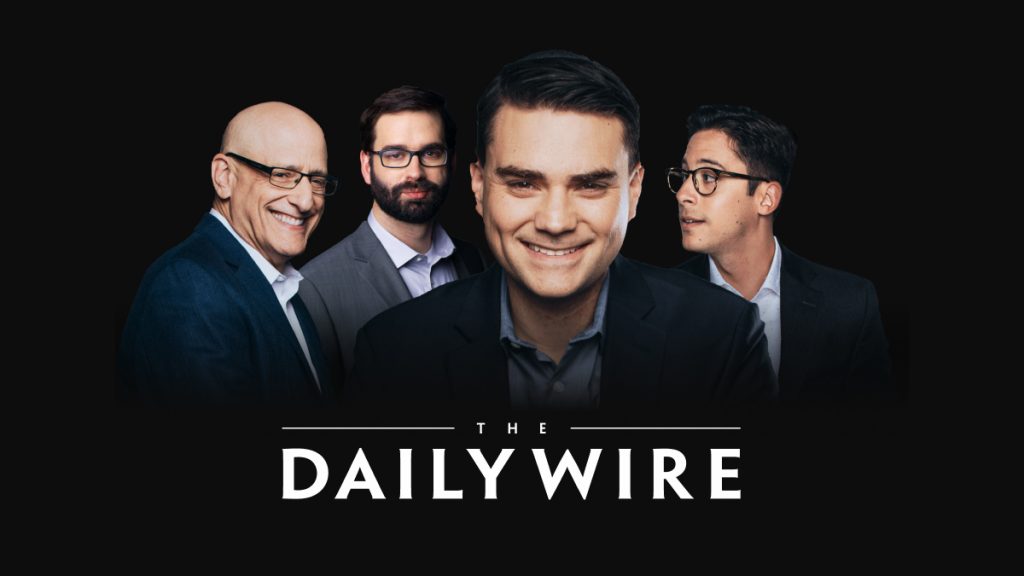Blog Post
Conservatives face off: Should we ban porn?
By Jonathon Van Maren
The great American porn debate has continued raging this past week (I summarized the ongoing conversation here), and the back-and-forth has been drawing a stark line through the conservative movement. Michael Knowles of the Daily Wire noted, rather sarcastically, that the outrage triggered by Matt Walsh’s suggestion that we ban pornography (or at least, figure out some way to keep it away from kids) was pretty hysterical:
The Federalist’s Ben Domenech wondered, “Are the conservatives who think they can ban porn online purposefully ignoring the massive expansion of government this would require, or are they too stupid to realize it?” The Washington Examiner’s Casey Given warned a porn ban would turn “America into the Christian version of Saudi Arabia.” A young man’s right to watch high-res footage of strange men doing strange things to desperate women is as American as apple pie, they seemed to say. Who but a Wahhabi theocrat could object?
Never mind that obscenity laws have always existed in the United States and that the federal government used them to jail a hardcore pornographer just ten years ago. Never mind that you need to show an ID to buy a Playboy. All those laws and prosecutions simply misunderstand the true purpose of America: unfettered individual liberty to pursue whatever tickles our fancy.
Knowles then goes on to explain why the current conservative dogma that any restraint on liberty is unAmerican (or unconservative) is wrongheaded:
For the past half century or so, despite all the partisan rancor, the Left and Right have accepted the same central premise about politics: namely, that the purpose of government is to maximize liberty. The Left has sought to expand social liberty by redefining marriage, decriminalizing prostitution—or “sex work“—and sacramentalizing abortion on demand. The Right has focused on expanding economic liberty through tax cuts, free trade, and deregulation. For decades the consensus has prevailed: the chief aim of American politics is to permit us all to follow our own appetites and desires, whatever they may be, with as little government interference as possible.
The Founders had a different idea. For starters, they distinguished between liberty and licentiousness. But more importantly, they understood that the chief purpose of government is justice, not liberty. James Madison, the Father of the Constitution, explained in Federalist 51, “Justice is the end of government. It is the end of civil society. It ever has been and ever will be pursued until it be obtained, or until liberty be lost in the pursuit.” Liberty plays an important role in justice, and there can be no justice without liberty, which is the power to do what one wills. But government exists first and foremost for the purpose of justice, which inclines the will to give each and all their due.
Ben Shapiro, who is incidentally the guy that both Walsh and Knowles call boss, responded by spending nearly a half hour on his podcast explaining why he thinks moral conservatives should stick to changing culture rather than using the law to restrain our baser instincts (although he does believe it would be constitutional to restrain porn in a number of ways, which would seem to provide the common ground necessary for the different factions to rally in pursuit of that common goal.) In short, Shapiro says, keeping porn away from kids should primarily be the work of parents and churches, and the government should largely stay out of it.
Interestingly, another one of Shapiro’s employees disagreed emphatically with that take in a column over at First Things. Daily Wire editor-at-large Josh Hammer described that argument thusly:
Knee-jerk classical liberal urging to merely “[l]et parents do their job” is sophomoric in the context of our pornography public health crisis. Rote sloganeering about rebuilding the culture from the ground up is an inadequate remedy for a systemic national emergency. The sheer ubiquity of and ease of access to pornography renders hollow meager pleas for civil society-centric solutions. Libertarians and classical liberals fail to recognize that using political power in the pursuit of national solidarity and wholesomeness can be both just and necessary.
Listening to Shapiro’s rundown on the porn debate, I’ll admit I thought that his arguments were fairly weak and, more importantly, didn’t actually address what those advocating for government action on porn were saying. Attempting to impose moral values on a country via federal legislation of some sort, Shapiro asserted, is immoral. That is what the Left does, and the Right should not attempt to play that dangerous game. After all, Shapiro noted, if the Right attempts to force their morality on the Left, the Left will simply do the same thing to the Right when they regain power.
I disagree with a few of those assertions. First of all, every law imposes morality of some sort, and so I think it is transparently obvious that this is not immoral. But further to that, I don’t think that banning pornography (or restricting access in some significant way) is a matter of the Right imposing their beliefs on the Left. In fact, the Left has traditionally been very anti-porn, from feminists like Andrea Dworkin, Naomi Wolf, and Gail Dines to academics such as Noam Chomsky. Pornography is a cultural poison that is mainstreaming sexual violence and transforming the minds of a generation, and so there is no reason to see this debate as a handful of Christians forcing their prudery on an entire nation. That simply isn’t the case.
But Shapiro’s primary point—that the Left’s attempt to impose their version of morality is immoral and that thus the Right should avoid this dangerous tactic because it is a) wrong and b) likely to result in blowback—seems to be somewhat contradictory. The argument some are making—and I haven’t completely worked out what I think of it yet—is that if the Left is using the power of government and the Right is not, this simply guarantees that the Right will lose the culture war. To say these political impositions are immoral is one thing, but to say that utilizing them would result in blowback from the Left is to ignore the fact that they are already doing so. The Left will seek to impose its agenda on America regardless of which path the Right decides to pursue, and the idea that we should avoid those tactics in the hopes that the Left will behave similarly is a moot point.
What some—like Sohrab Ahmari—are saying is that without utilizing political power, we will continue to lose the culture war. When conservatives and libertarians say that we should simply rely on parents and churches to restrict access to porn (and that is certainly their job, too), they are ignoring the facts on the ground—specifically, that an omnipresent Internet renders that task nearly impossible. What the Sohrab Ahmari crowd is saying is that when a tidal wave of porn sweeps away a whole generation, which it is currently doing, losing the culture is all but guaranteed. And when those are the circumstances, perhaps it is time to consider political strategies that don’t fit neatly into the classical liberal, free-market ideology of the Reagan-Bush era.









The states with the highest use of porn are in the bible belt and Utah.
The christians are the biggest users of online porn.
1. Not true, if you break the stats down–those who actually attend church (as in, practice) use porn far less.
2. If that were true, it wouldn’t be relevant to the arguments being made.
When Christians try to impose Christian standards without making mention of God, then we seem to be doing exactly what the Left is trying to do – impose our arbitrary standards on someone else. And then the very Law God has written on our hearts (Romans 2:15) results in the blowback you speak of. Jesus warns in Matthew 7 that we should only impose standards that we think could be equally applied to ourselves, and if what the Left sees us do is impose our arbitrary morality – our mere opinions – then why shouldn’t they feel comfortable doing the very same to us?
So we can’t address pornography, simply as a health epidemic, though it is that. Try that and the Left can counter that with something like, “Hey, those porn addicts sure do have progressive views on transgenderism…which shows, despite some downsides, porn use has upsides too.”
What we need to do, in our churches, across the back fence, and in the political sphere too, is address this as Christians. That means speaking of why God created sexuality, how He has made each one of us in His very Image, and how, when we depart from our Maker’s plans for us, it is to our own hurt.
That’s a harder conversation to be had then simply: “Porn use leads to erectile dysfunction!” But it is the conversation that brings honor to God in a way that trying to impose Christian morals via non-Christians reasons doesn’t. And in doing so, it strikes at the very heart of the issue: rebellion against God.
I’m not saying we need to quote chapter and verse to unbelievers (they don’t care where in the Bible the biblical principle is found). I am saying that unless we contrast the pagan worldview with God’s thoughts – professing them AS God’s thoughts – then all we’re doing is trying to mollify the pagans, to calm them down a bit to make them easier to live with. But we’re not actually doing them any good. And we’re not living out our own life’s purpose to glorify God.